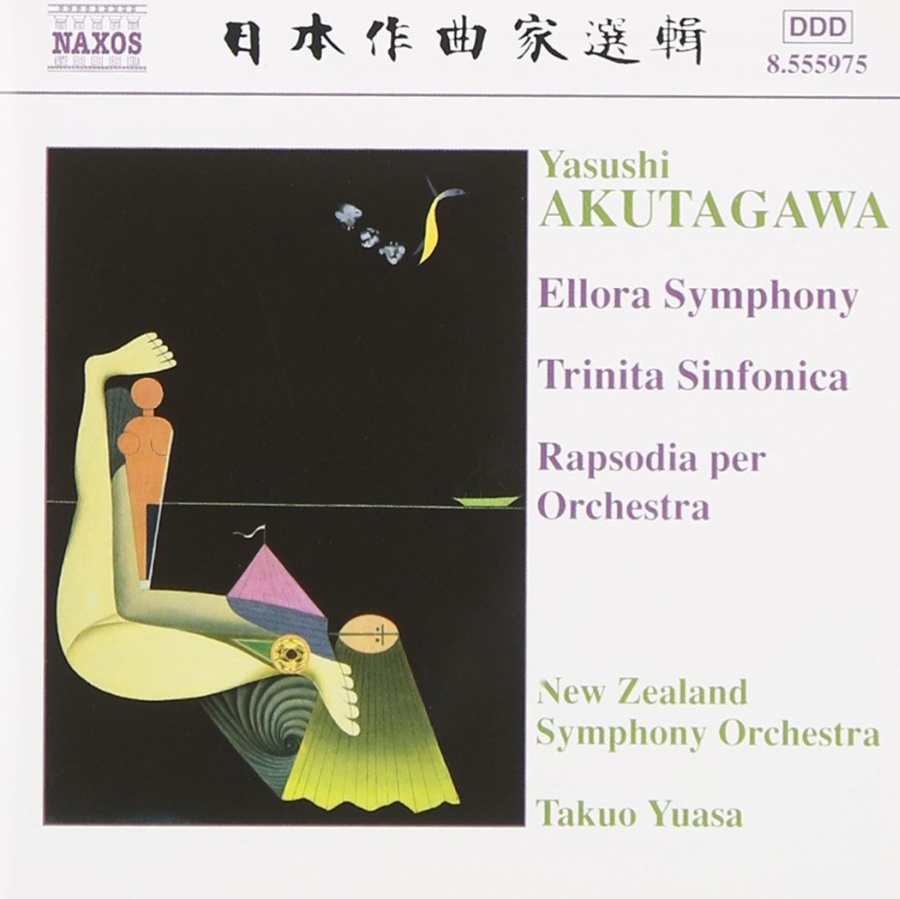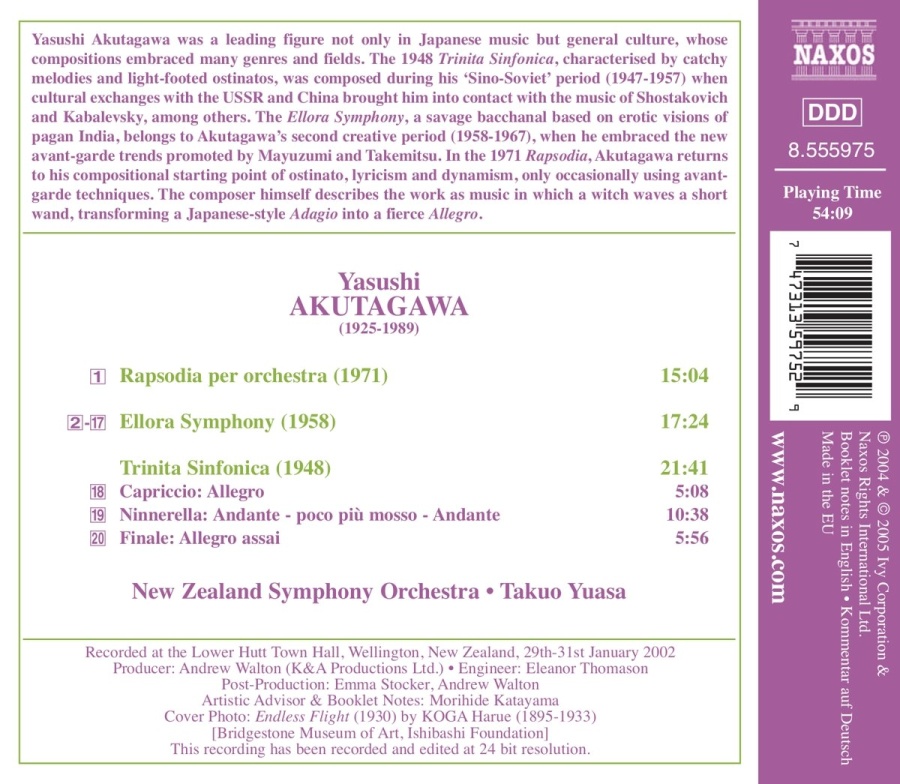
kompozytor
Akutagawa, Yasushi
tytuł
AKUTAGAWA: Ellora Symphony; Trinita Sinfonica; Rhapsody
wykonawcy
New Zealand Symphony Orchestra;
Yuasa, Takuo
Yuasa, Takuo
nr katalogowy
8.555975
opis
Yasushi Akutagawa was a leading figure not only in Japanese music but general culture, whose compositions embraced many genres and fields. The 1948 Trinita Sinfonica, characterised by catchy melodies and light-footed ostinatos, was composed during his ‘Sino-Soviet’ period (1947-1957) when cultural exchanges with the USSR and China brought him into contact with the music of Shostakovich and Kabalevsky, among others. The Ellora Symphony, a savage bacchanal based on erotic visions of pagan India, belongs to Akutagawa’s second creative period (1958-1967), when he embraced the new avant-garde trends promoted by Mayuzumi and Takemitsu. In the 1971 Rapsodia, Akutagawa returns to his compositional starting point of ostinato, lyricism and dynamism, only occasionally using avantgarde techniques. The composer himself describes the work as music in which a witch waves a short wand, transforming a Japanese-style Adagio into a fierce Allegro.
nośnik
CD
gatunek
Muzyka klasyczna
producent
Naxos
data wydania
17-08-2004
EAN / kod kreskowy
747313597529

(Produkt nie został jeszcze oceniony)
cena 58,00 zł
lubProdukt na zamówienie
Wysyłka ustalana indywidualnie.
Darmowa wysyłka dla zamówień powyżej 300 zł!
Darmowy kurier dla zamówień powyżej 500 zł!
sprawdź koszty wysyłki





























